The festivities dedicated to the 70th anniversary of the Great Victory
The festivities dedicated to the 70th anniversary of the Great Victory have started in the Roerich Estate in the Western Himalayas (International Roerich Memorial Trust).
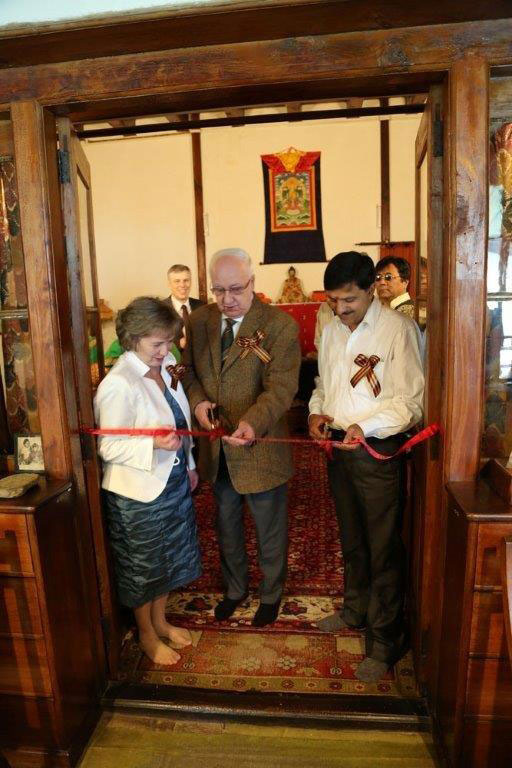 | |
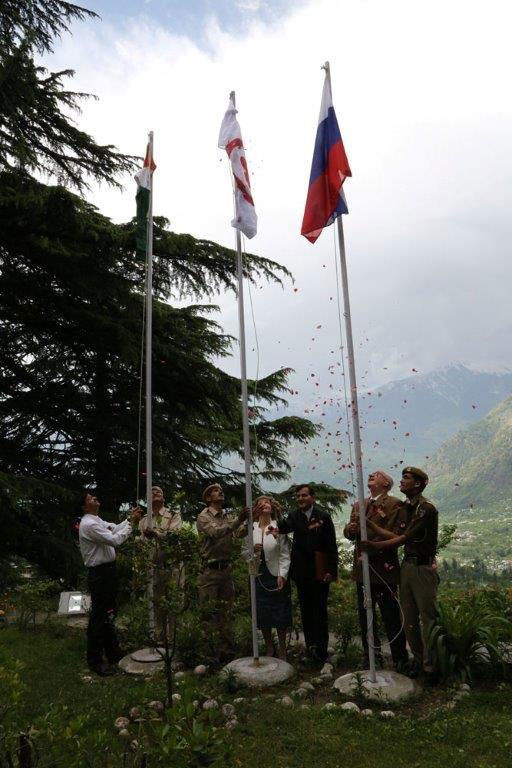 | |
The opening of the unique exhibition titled “The Sacred Spring of Victory” jointly organized by the International Roerich Memorial Trust (IRMT), Naggar, Himachal Pradesh), the International Centre of the Roerichs, Moscow and the Embassy of the Russian Federation in the Republic of India became the focal point of the festivities. The colourful exhibition features reproductions of the paintings by a renowned Russian artist, scholar, traveler and philosopher Nicholas Roerich created between 1932 and 1947 when he stayed and worked in India. Just like the “splendid wings of Victory” these 30 works by the great artist convey the noble ideas of the triumph of the forces good and justice, praise the heroes who rose to defend their native land from the aggressors that threatened it, and call for the earnest protection of peace. Staying here, in the Himalayas so far, as it were, from his motherland, the artist was inseparable from everything that his country was going through. With their every spiritual and creative effort Roerich and his entire family participated in the winning of Victory.
It is understandable that for advertisement of the exhibition we have chosen a fragment of the prophetic painting titled Victory depicting a valiant warrior who defeated a terrifying dragon in hot battle. It was completed in 1942 under the impression of the Stalingrad battle, which ended in a crushing defeat of the Nazi armies and marked the turning point of the Great Patriotic War. The battle became a portent of the coming triumph over the Nazi forces, which followed the storm of Berlin and total surrender of Wehrmacht.
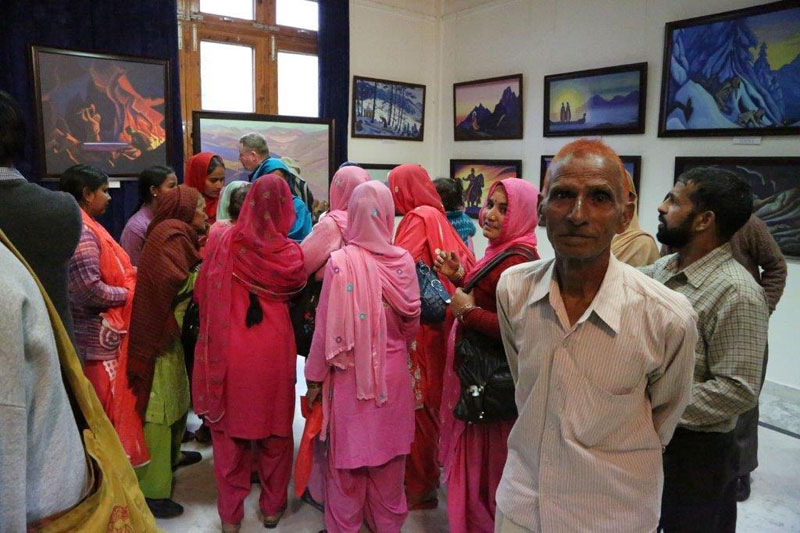 | 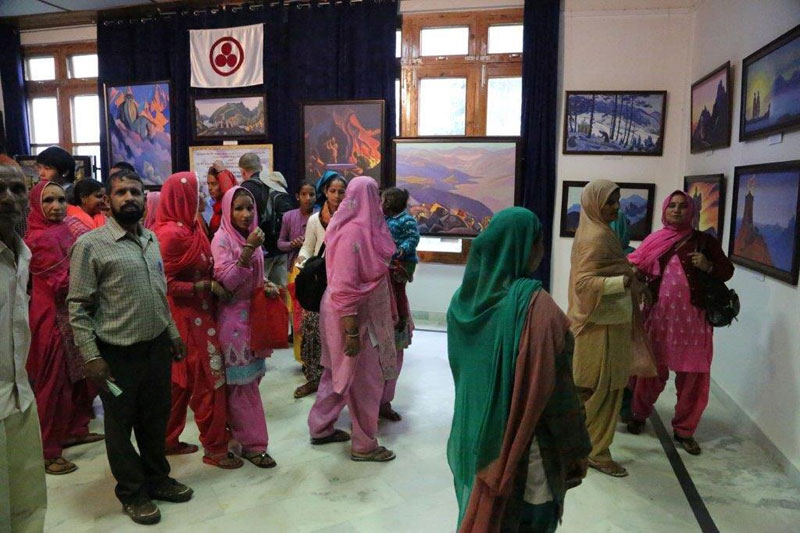 |
Ambassador of the Russian Federation in India and Vice President of the IRMT Mr Alexander Kadakin, DC Kullu-cum-Director, IRMT Mr Rakesh Kanwar and the Curators of the museum complex the employee of the International Centre of the Roerichs in Moscow Mrs Larisa Surgina and Mr Ramesh Chander took part in the grand opening of the exhibition. In accordance with the tradition the national flags of Russia and India were hoisted along with the Banner of Peace in front of the Roerich Memorial House, and a puja (prayer ceremony) in memory of those who fought for Victory was conducted in front of the ancient stone images of the protecting deities of the Kullu valley.
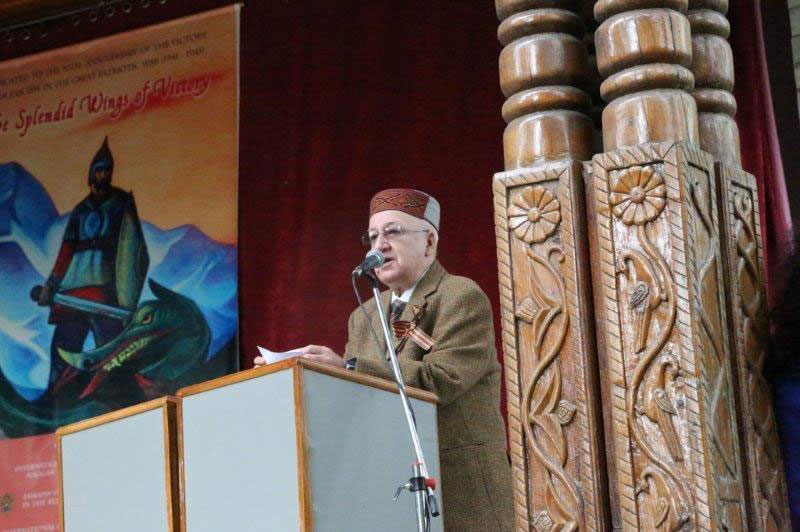 | |
Addressing the guests, among whom apart from Indians one could see a number of Russian and other foreign tourists Mr Kadakin remarked that the 70th anniversary of the Great Victory was preceded by another remarkable date, the 80th anniversary of the signing of the Roerich Pact. He noted that “It is symbolic that the Pact was signed at a time when Hitler’s fascism was already raising its ugly head in the heart of Europe. It looks like the artist intuitively saw a red light of the danger impending. Nicholas Roerich, as well as his wife Helena and sons Yuri and Svyatoslav, who worked tirelessly for the promotion and advocacy of this document, clearly realized the scale of that terrible disaster, which was casting its shadow on the whole world. This exhibition is a reminder of the past lessons and a warning to all those who attempt today to rewrite history, revive fascism and justify its horrible crimes.”
Director General of the Museum named after Nicholas Roerich and Vice President of the International Centre of the Roerichs, Moscow Mrs Lyudmila Shaposhnikova noted in her address that from the very start of the war Nicholas Roerich used every opportunity to help his motherland. His paintings became prophetic visions of victory. In the end his prophesies came true. Having made an enormous effort and sacrifice, the Russian people won a victory over fascism.
She mentioned in her address that “Indo-Russian relations have always been based on the time-tested traditions of cooperation, mutual respect and support. I am convinced that the celebrations at the International Roerich Memorial Trust will go long way in strengthening and preservation of peace and culture on the planet.”
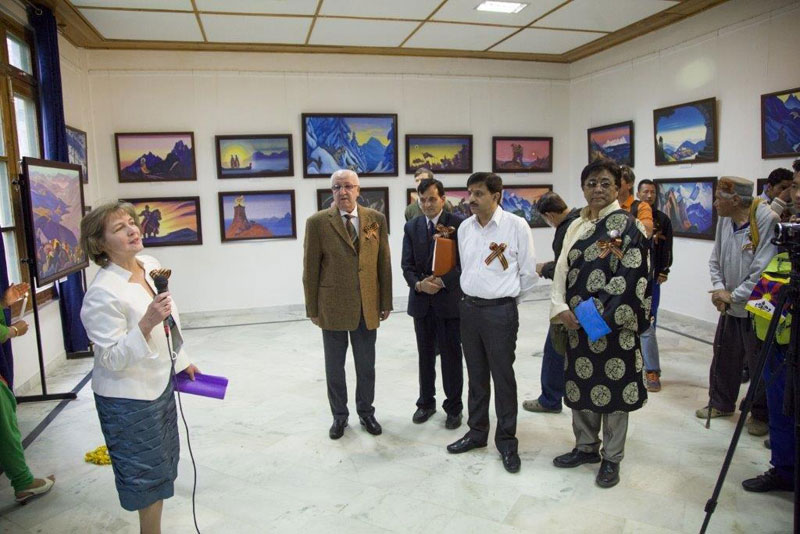 | |
“We are grateful to our Russian friends for their initiative to celebrate the anniversary of Victory in the Roerich Memorial Estate,” – said Mr Kanwar. “The Pact developed by Roerich is a unique international document meant to protect historical and artistic monuments in the event of war and armed conflict, which remains relevant nowadays. It is proved by the tragic events in different regions of the world, whether Afghanistan or Ukraine.”
In her speech Mrs Larisa Surgina noted that “In May 1945 Nicholas Roerich celebrated the sacred spring of victory along with his family members, residents of the Kullu Valley, his motherland and the whole world. Today, 70 years after we have gathered here in the Roerich Estate to recall the high price that many nations had to pay for the victory and full-heartedly support the great peace-making ideas of Roerich, which he expressed in the succinct and laconic formula “Peace through Culture.””
This was followed by the cultural programme featuring the teachers and students of the Helena Roerich Art Academy for Children, who performed the much-loved in Russia song “Katyusha” and the dance troupe of the Katrain Senior Secondary School who performed the mainstay of every cultural programme in Naggar, the traditional dance of the Himalayan valleys – nati.
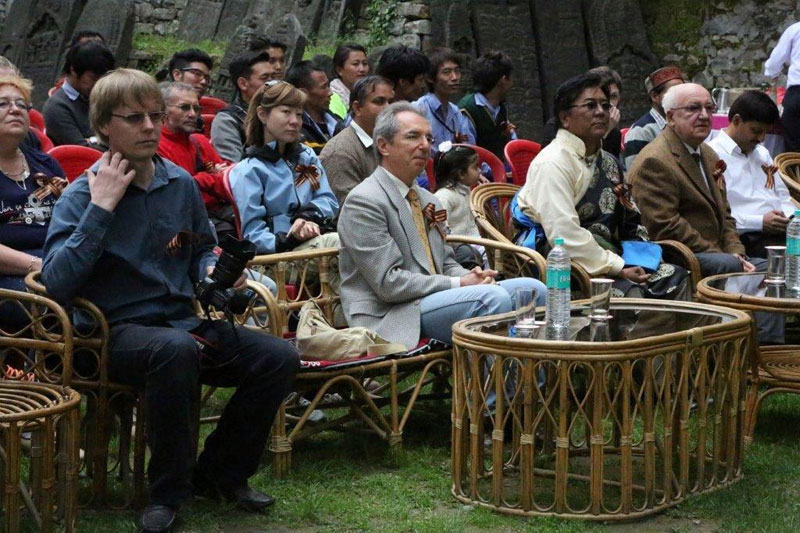 | 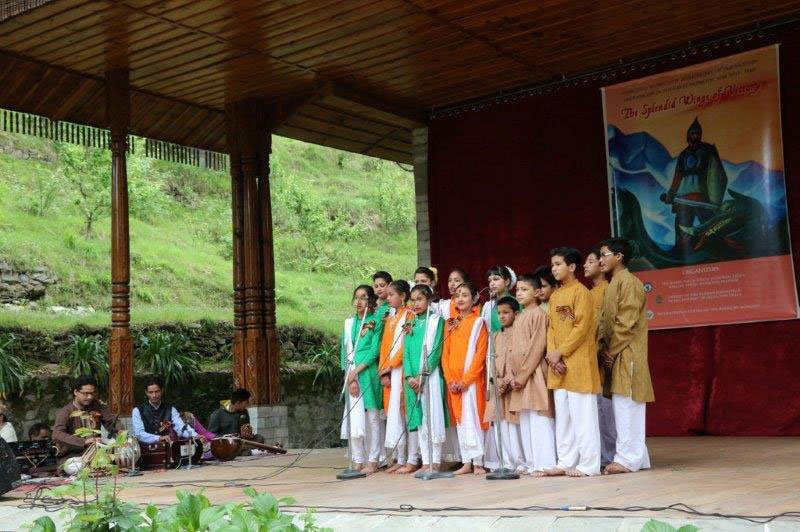 |
During the celebrations the collection of the Memorial Roerich House was augmented by two more items: reproductions of Nicholas Roerich’s triptych Fiat Rex! and Svetoslav Roerich’s Portrait of Nicholas Roerich in Tibetan Attire, which were kept in the Library on the 1st floor of the Roerich House in the times of the Roerichs. The reproductions printed on canvas in original size have taken their historical place in the interior of the room going on the Kulu valley.
As a part of these celebrations the IRMT will conduct a children’s painting competition titled “Peace through Culture”, screen war films and organize a lecture on the activities of the Roerichs before and during the Great Patriotic War.